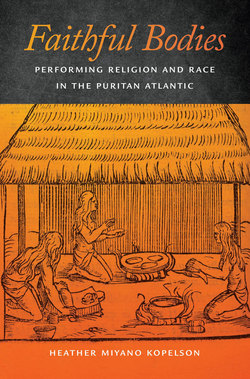Читать книгу Faithful Bodies - Heather Miyano Kopelson - Страница 7
ОглавлениеAcknowledgments
It is a pleasure to have the opportunity to thank all of those who have helped me over the years of researching and writing this book. Several institutions provided key financial support: the University of Iowa Graduate College and Department of History, the John Nicholas Brown Center, the Huntington Library, the Massachusetts Historical Society, the New England Regional Fellowship Consortium, the McNeil Center for Early American Studies, the Center for the Study of Race and Ethnicity at Brown University, and the Research Grants Committee at the University of Alabama (UA). The chair of the UA history department, Kari Frederickson, helped secure funding for image permissions.
Archivists and staff made research not only possible but much easier and more pleasant at the Bermuda National Archives, the Boston Athenæum, Connecticut Historical Society, Friends’ House Library, Historic Deerfield, Huntington Library, John Carter Brown Library, Massachusetts Historical Society, New England Historic Genealogical Society, Newberry Library, Newport Historical Society, Public Record Office of the National Archives of the United Kingdom, and Rhode Island Historical Society. At the UA Libraries, I would especially like to thank Brett Spencer and Pat Causey.
I would also like to offer a most heartfelt thank you to those who extended their hospitality during my peripatetic research wanderings following an Atlantic topic: John Aler, Andrew and Rosie Doughty, Matt Garcia, Rebecca Goetz, Evan Haefeli, Marie Martineau, Julia Kopelson, Kevin Kopelson, Margie and Peter Lloyd, Maria Mendez, Walter Woodward, and Irene Woodward. Thanks to John Adams and Andrew Trimingham, Charlotte Andrews, John Cox, Karla Hayward, Clarence Maxwell, William S. Zuill, and Rebecca Zuill, Bermuda quickly felt like a second home. I am grateful for my compatriots who helped me survive the rigors of graduate school, especially the members of United Electrical Local 896–COGS and the feminist theory reading group.
I am deeply appreciative of the assistance and guidance of my mentors Mark Peterson and Linda K. Kerber. The comments and suggestions of audiences at a multitude of conferences and seminars have improved many parts of this book. I would particularly like to thank participants of seminars at the Massachusetts Historical Society, Columbia University, the McNeil Center, Virginia Tech, Ohio State University, and Rice University; as well as the Harvard early American working group, with a special thanks to Laurel Thatcher Ulrich for inviting me to participate. An earlier version of chapter 1 appeared in Early American Studies, while portions of chapters 9, 10, and 11 appeared in the William and Mary Quarterly.
Friends and colleagues not already mentioned who have commented on chapters, offered encouragement, or assisted in nonacademic ways include: the 2006–2007 MCEAS Fellows, Margaret Abruzzo, Douglas Baynton, Kristen Block, Vincent Brown, T. Dwight Bozeman, Joyce Chaplin, Christian Crouch, Jennifer Davis, Yvonne Fabella, Linford Fisher, Christina Frantom, Charles Foy, Travis Glasson, Robert E. Harvey, Dennis Hidalgo, Michael Jarvis, Catherine Kelly, Karen Kupperman, Jill Lepore, Annie Liss, Ann Little, Alice Nash, Paul Mapp, Brendan McConville, Jennifer Morgan, Margaret Newell, Katherine Paugh, Yvonne Pitts, Ann Marie Plane, Jennifer Purvis, Dana Quartana, Daniel Richter, Sharon Romeo, Todd Romero, Phillip Round, Jenny Shaw, and Lee Spilberg. At NYU Press, Deborah Gershenowitz was everything an author of a first book could hope for in an editor. Debbie moved to a different press before this book was through publication, and so I also have the pleasure of thanking another wonderful editor, Clara Platter. Constance Grady kept everything running on an even keel. An anonymous reader and Ann Little offered insightful comments and questions that guided me in strengthening the book in fundamental ways, and Ann even read the manuscript a second time.
My family has provided innumerable kinds of support and lots of love. My parents, Robert and Reiko Kopelson, and my sister, Julia Kopelson, have helped in ways grammatical, global, retail, and artistic. The child-care assistance given by Brittany and Emily Innis made possible the timely completion of an earlier incarnation of this book. The dedicated, highly skilled teachers at the Capitol School have helped Teo explore and understand the world, while Jessie Tuggle has been a second mother to Alessandra, gifts for which I am incredibly thankful. And to my partner, Michael Innis-Jiménez: thank you for sharing in the navigation of our life together.
